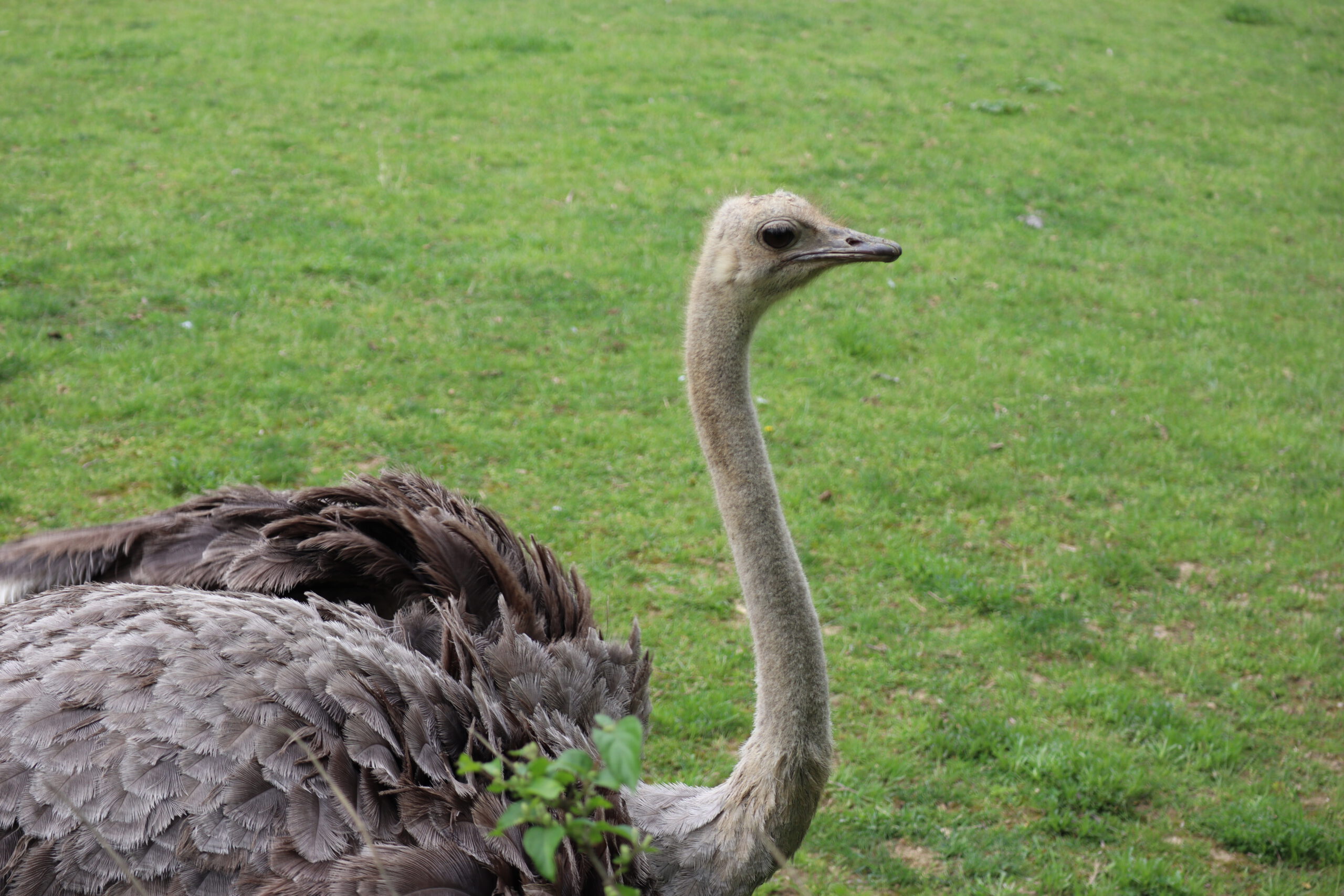I LIVE IN AFRICA
Ostriches typically will inhabit the open savannah or wide plains of northeastern and southern Africa.
I AM AN OMNIVORE
This avian species will eat fruits, seeds, leaves, green plants and even small vertebrates when the opportunity arises.
OSTRICHES ARE SOCIAL
Ostriches can often be found living in flocks of about 10 individuals, in rare instances, flocks can have up to 100 ostriches. Their social nature helps with gathering and defense.
THE BIGGEST BIRD
Ostriches are the heaviest and largest living bird. The innermost toe of the ostrich is larger and bears most of the bird’s weight. Although their feathers are not designed for flight, ostriches use their wings to maintain balance while they run at high speeds.
HELPING OSTRICHES IN THE WILD
The Fort Wayne Zoo supports the Sahara Conservation Fund – Ostrich Project. This project focuses on preserving fragile desert habitats, as well as saving the critically endangered north African ostrich.
I AM IMPORTANT TO MY ECOSYSTEM
Ostriches play a very important role in their ecosystem through seed dispersal and keeping the insect and rodent populations under control.

